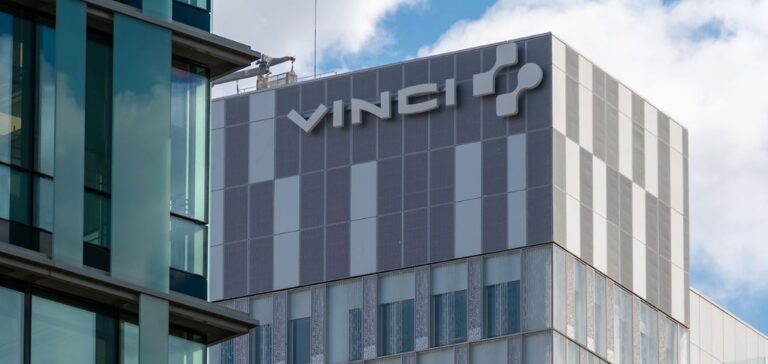The increase in taxation on large companies in France is raising concerns within the industrial sector. Xavier Huillard, CEO of Vinci, expressed his concerns during the group’s annual results presentation, criticizing the tax burden that could weigh on investment and the competitiveness of companies operating in France.
An Exceptional Tax Raising Concerns Over Its Sustainability
The exceptional contribution on large corporate profits, introduced in the 2025 budget to reduce public deficit, represents an additional charge of approximately 400 million euros for Vinci. For Xavier Huillard, this measure particularly penalizes companies that have chosen to maintain and expand their activities in France.
Other major corporate leaders, such as Bernard Arnault (LVMH) and Patrick Pouyanné (TotalEnergies), have also criticized a tax policy seen as discouraging the development of “Made in France.” If the tax remains temporary, its impact would be manageable, according to the Vinci CEO. However, he expressed doubts about the government’s ability to refrain from renewing it in the coming years.
An Impact on Industry and Investments
Vinci remains deeply rooted in France, where it generates more than 40% of its business. The group tests new solutions domestically before exporting them internationally. Despite this commitment, fiscal and regulatory uncertainty could influence investment decisions, particularly for industries with high energy consumption.
The Vinci CEO points out that increasing fiscal pressure could push some industrial players to prioritize foreign investments. Energy-intensive industries, which are particularly sensitive to energy and tax costs, might find it more attractive to invest in markets with more favorable conditions.
The Need for Regulatory Stability
Beyond taxation, Xavier Huillard emphasizes the need for regulatory stability for businesses. He criticizes the continuous introduction of new regulations, which complicate corporate management and hinder their development. He calls for a regulatory pause to give economic players greater visibility on applicable standards.
At a time when industrial competitiveness is a key issue, balancing budgetary needs with economic attractiveness remains a critical question. The evolution of France’s tax and regulatory policies will be decisive for the investment strategies of major companies and the future of its industrial landscape.






















